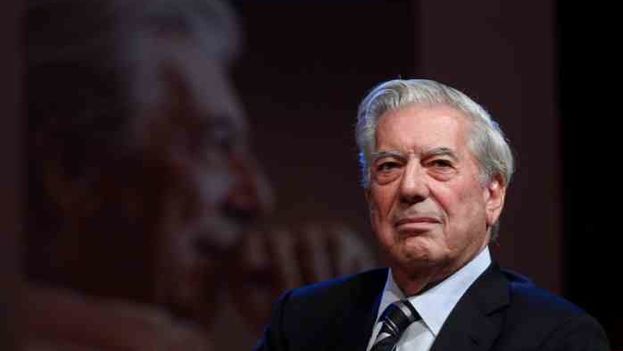
14ymedio, Mauricio Rojas, 17 April 2016 — On 28 March Mario Vargas Llosa turned 80 and wanted to celebrate with a brief reflection on his political thinking and, in particular, his form of being a liberal. For this I want to start from two great French thinkers who played a key role in his intellectual development: Jean-Paul Sartre and Albert Camus.
Sarte, who was a great cultural hero for the young Vargas Llosa, did not stand the test of time. His dialectical artifices were not, in the end, capable of justifying the unjustifiable, that is, the supposed distinction between “progressive oppression,” undertaken in the name of a future paradise on earth, and oppression, plain and simple. However, Sarte did survive in the idea of a writer committed to his time, who takes sides, who is not silent, who doesn’t look away. Nothing is more foreign to Mario Vargas Llosa than indifference to his world.
This attitude has been a touchstone in a life in which politics has never been absent. This does not mean confusing politics with literature, essentially different activities, which Vargas Llosa himself never tires of explaining: the writer, the artist in general, starts from the sovereignty of his imagination to forge “real unrealities,” fictions so convincing that we experience them, for a moment, as reality. Those who engage in politics, on the other hand, should take care not to fall into political-fiction and do great damage, starting always from the sovereignty of what is really possible.
I now turn to Albert Camus. I associate him with that rebellious streak that, in my opinion, makes Vargas Llosa who he has always been. Rebellious in the sense of Camus, that is, one who does not accept indignity, injustice, oppression. Who says no and stands up to tyrants of every kind. The rebel is not a revolutionary who dreams of earthly paradises or new men. No, the rebel acts for the men we are, that imperfect and limited being, like all of human society that we can construct. But it no case does he resign himself to what we are versus what we can and must be: dignified, respected, free.
Vargas Llosa’s rebellious streak has resulted in what has been his most constant struggle, his true existential predicament from childhood: his strong, visceral opposition to authoritarianism, tyranny, dictatorship. He himself has expressed it better than anyone on several occasions. As an example I took some of his words from a conversation with Enrique Krauze:
“If there is anything I hate, that disgusts me deeply, that outrages me, it is a dictatorship. It is not only a political conviction, a moral principal: it is a gut feeling, a visceral attitude, perhaps because I have suffered many dictatorships in my own country, perhaps because from early childhood I experienced first hand this authority that imposes itself with brutality.”
I think I do not exaggerate when I say that very little in the life of Mario Vargas Llosa would be comprehensible if we don’t consider this aspect. To write, as he reminds us in his memoir A Fish in the Water, was also an act of rebellion before “this authority that imposes itself with brutality,” a vital act of resistance facing, in this case, the violence of his father in demanding that dignity and freedom that we are owed and that we owe every human being.
Hence, an absolute repulsion toward all tyrants. From General Odría, the Peruvian dictator whose regime marked Vargas Llosa’s youth, to the dictators and caudillos of the left and right who have marked our time, be they Brezhnev or Pinochet, Castro or Batista, Chavez, Khomeini or Qaddafi.
This consideration allows us to address the very nature of Vargas Llosa’s liberal thought, what he has called “integral liberalism.” This is something absolutely fundamental, as it distinguishes and denounces the suicidal temptation of a certain “liberalism,” not uncommon in Latin American, to reduce that expansive tree that is freedom to economic issues.
This does not mean that Vargas Llosa devalues the fundamental importance of an economy based on freedom, one that has allowed, as it has recently been extended across almost the entire planet, a higher standard of living for human beings in a way never before seen. This is clear, and provokes the ire of those who believe that, at least with regards to the economy, freedom is not our best option. But this does not mean transforming this freedom into the only thing worth defending, or into a kind of superior freedom before which other freedoms must prostrate themselves.
Taking this position has led Vargas Llosa to define liberalism in a way that reminds us of the most original, Hispanic, sense of what it means to be liberal, that which Octavio Paz recalled in 1981 on receiving the Cervantes Prize: “The word liberal appears early in our literature. Not as an idea or a philosophy, but as a temple and an encouragement; more than ideology, it was a virtue.”
This virtue, this form of being liberal with which we identify ourselves, as Vargas Llosa said in a text where he reclaims the intellectual heritage of Ortega y Gasset, is “based on tolerance and respect, in a love for culture, a desire for coexistence with others, with the other, with others, and a firm defense of freedom as a supreme value.”
